Research Collections and Support
Libraries are increasingly leveraging the raw materials of scholarship and knowledge formation by emphasizing the creation and curation of institutional research assets and outputs, including digitized special collections, research data, and researcher profiles. Our work informs current thinking about research collections and the emerging services that libraries are offering to support contemporary modes of scholarship. We are encouraging the development of new ways for libraries to build and provide these types of collections and deliver distinctive services. Our efforts are focused in the following three areas:
Publications
Narrow by
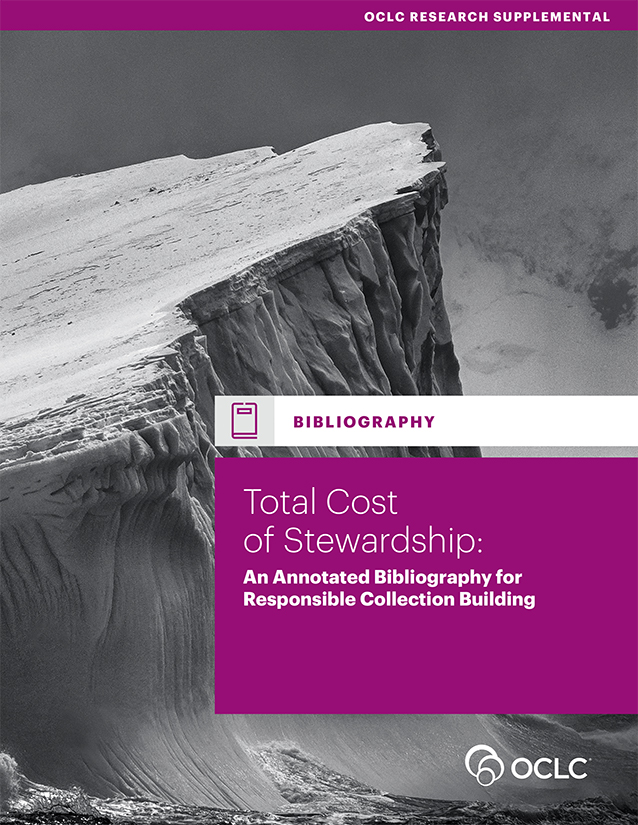
Total Cost of Stewardship: An Annotated Bibliography for Responsible Collection Building
16 March 2021
Chela Scott Weber, Martha O’Hara Conway, Nicholas Martin, Gioia Stevens, Brigette Kamsler.
The Total Cost of Stewardship framework is a holistic approach to understanding the resources needed to responsibly acquire and steward archives and special collections. Included materials: Research Report, Annotated Bibliography, and Tool Suite, which includes a Manual, Cost Estimators, and Communication Tools.
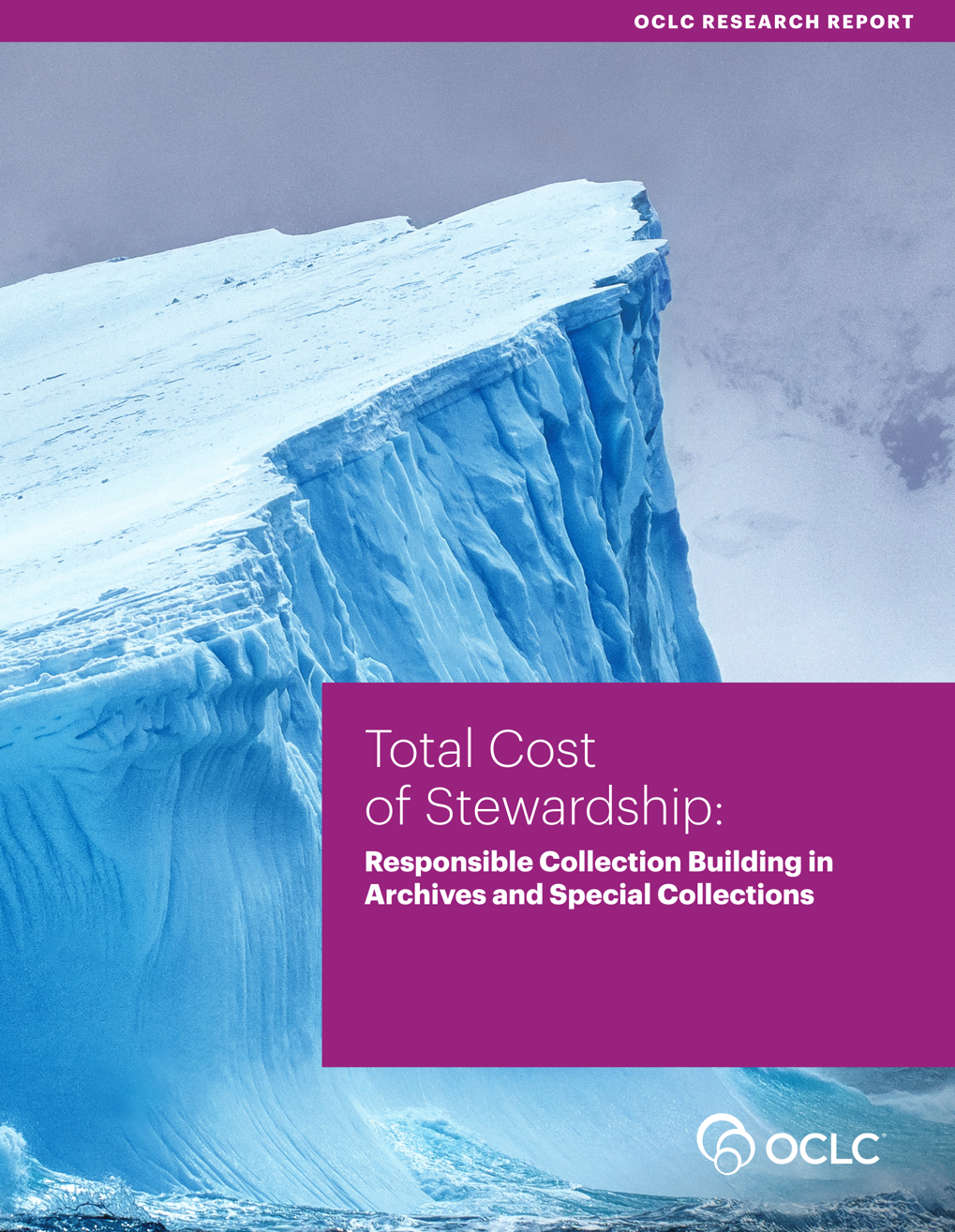
Total Cost of Stewardship: Responsible Collection Building in Archives and Special Collections
16 March 2021
Chela Scott Weber, Martha O’Hara Conway, Nicholas Martin, Gioia Stevens, Brigette Kamsler.
The Total Cost of Stewardship framework is a holistic approach to understanding the resources needed to responsibly acquire and steward archives and special collections. Included materials: Research Report, Annotated Bibliography, and Tool Suite, which includes a Manual, Cost Estimators, and Communication Tools.
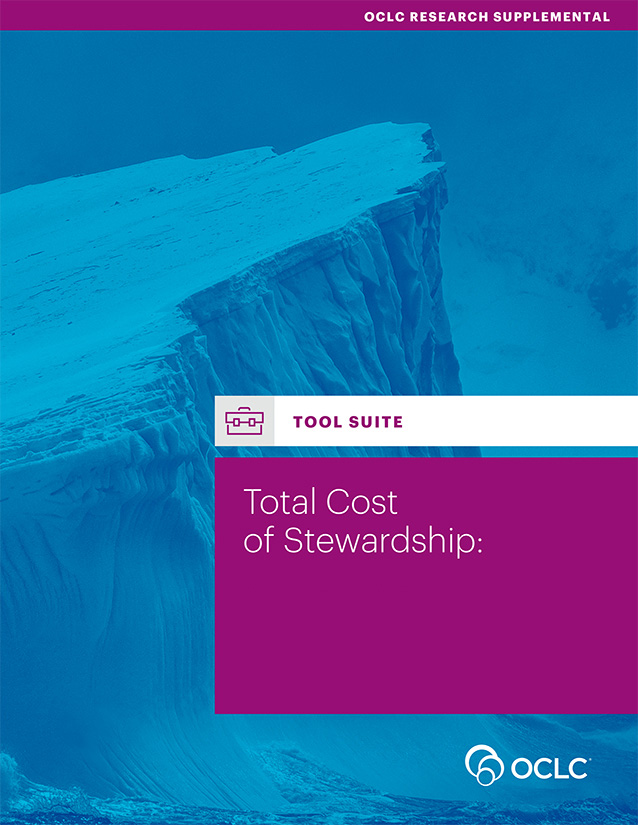
Total Cost of Stewardship: Responsible Collection Building in Archives and Special Collections - Tool Suite
16 March 2021
Chela Scott Weber, Martha O’Hara Conway, Nicholas Martin, Gioia Stevens, Brigette Kamsler.
The Total Cost of Stewardship framework is a holistic approach to understanding the resources needed to responsibly acquire and steward archives and special collections. Included materials: Research Report, Annotated Bibliography, and Tool Suite, which includes a Manual, Cost Estimators, and Communication Tools.
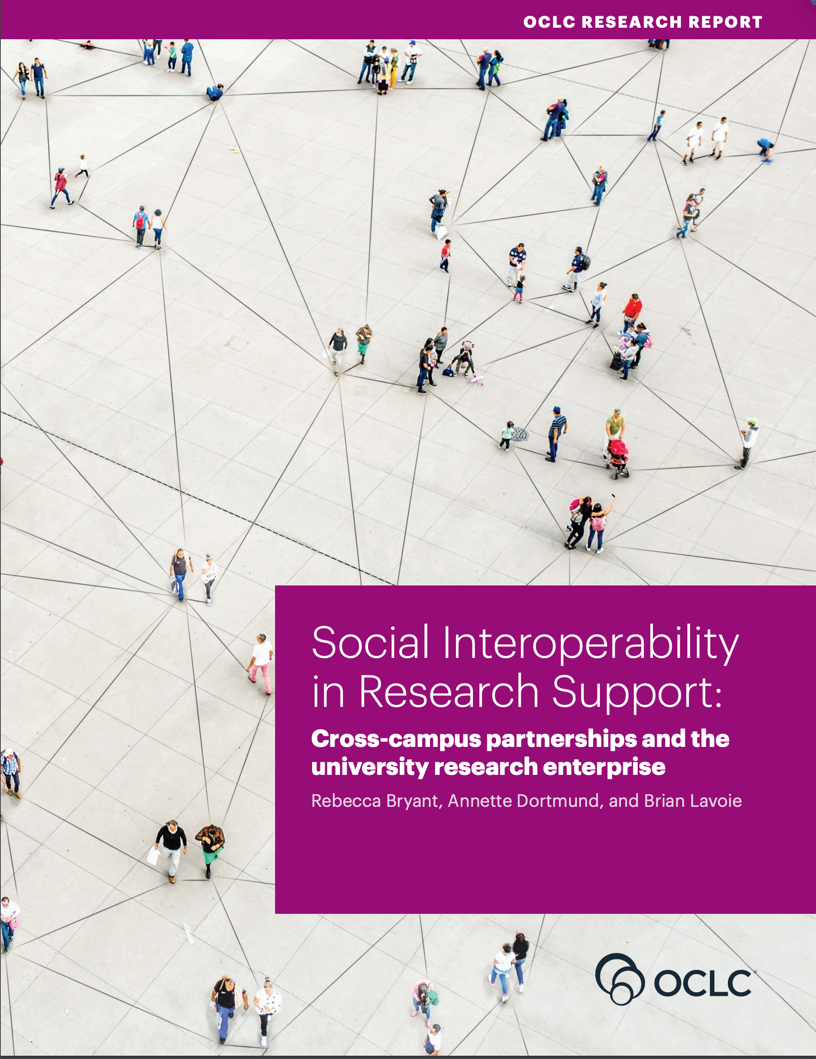
Social Interoperability in Research Support: Cross-campus Partnerships and the University Research Enterprise
20 August 2020
Rebecca Bryant, Annette Dortmund, Brian Lavoie
The report defines social interoperability and describes the network of campus units involved in major areas of university research support services. It concludes by offering recommendations for cultivating successful cross-campus relationships.
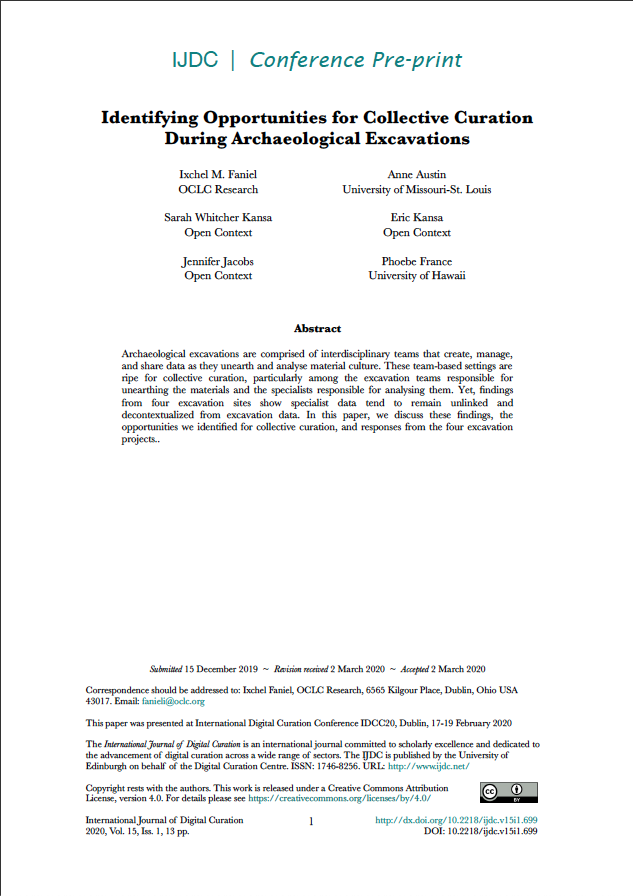
Identifying Opportunities for Collective Curation during Archaeological Excavations
6 August 2020
Ixchel Faniel, Anne Austin, Sarah Whitcher Kansa, Eric Kansa, Jennifer Jacobs, Phoebe France
Archaeological excavations are comprised of interdisciplinary teams that create, manage, and share data as they unearth and analyse material culture. These team-based settings are ripe for collective curation during these data lifecycle stages. However, findings from four excavation sites show that the data interdisciplinary teams create are not well integrated. Knowing this, we recommended opportunities for collective curation to improve use and reuse of the data within and outside of the team.
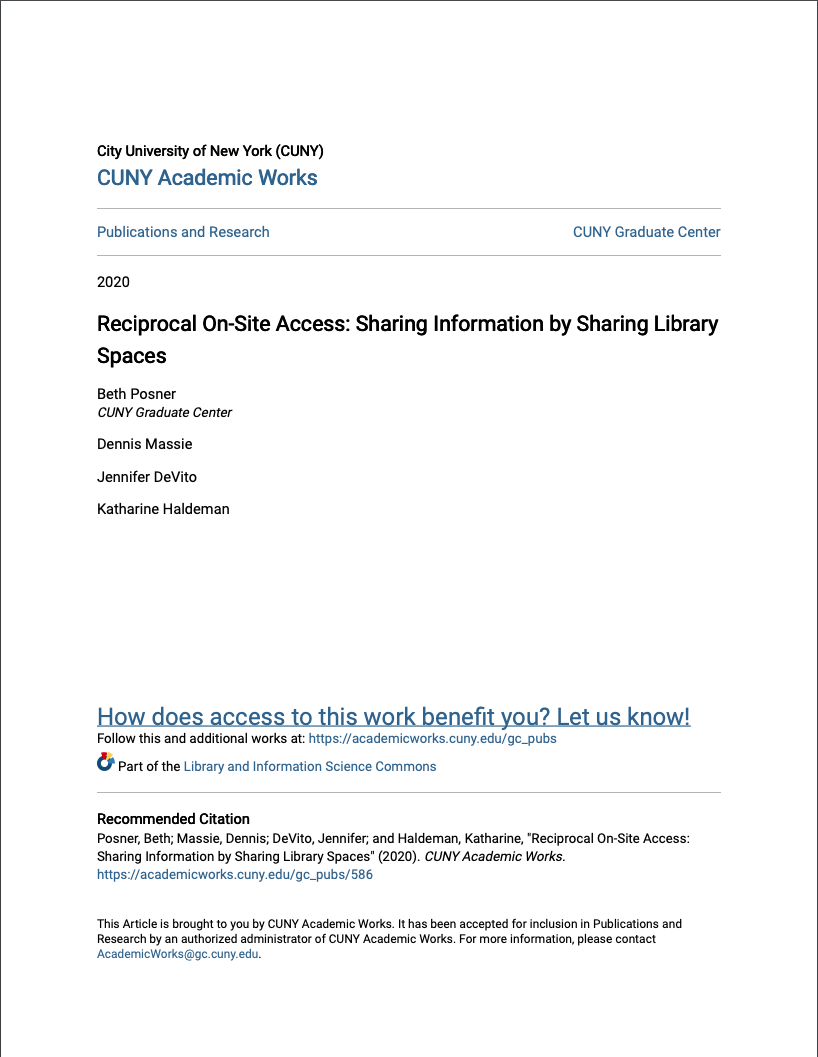
Reciprocal On-Site Access: Sharing Information by Sharing Library Spaces
1 February 2020
Beth Posner, Dennis Massie, Jennifer DeVito, Katharine Haldeman
On-site reciprocal access to libraries is a valuable benefit of consortial membership. This article details its advantages, offers a sample of some ways in which consortia facilitate such access and reviews the work of the authors, within the SHARES consortium, in this area.
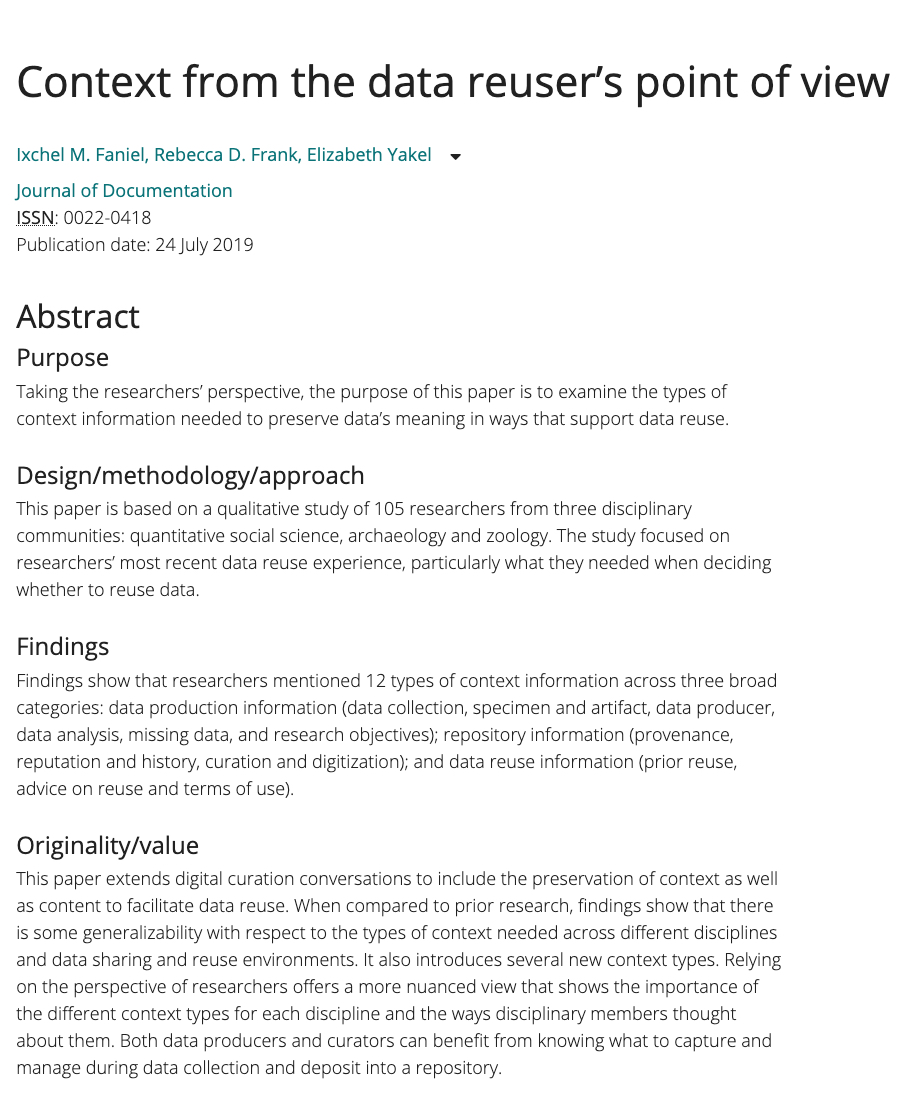
Context from the Data Reuser’s Point of View
26 September 2019
Ixchel M. Faniel, Rebecca D. Frank, Elizabeth Yakel
Context is critical for data reuse, and digital curation should include both context and content preservation. Both data producers and curators benefit from expanding context categories to better determine what information is vital to capture and manage during data collection to support data reuse.
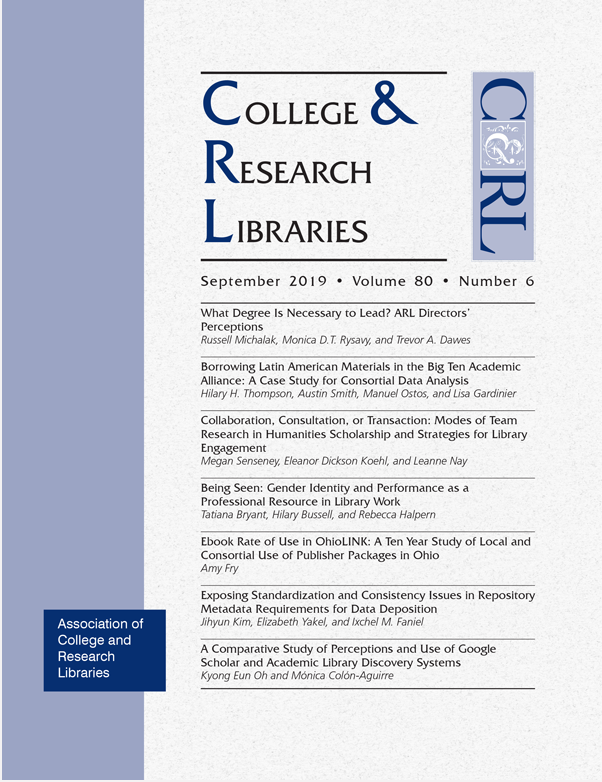
Exposing Standardization and Consistency Issues in Repository Metadata Requirements for Data Deposition
1 September 2019
Jihyun Kim, Elizabeth Yakel, Ixchel M. Faniel
In this article in College & Research Libraries Journal, the authors examine common and unique metadata requirements and their levels of description, determined by the data deposit forms of 20 repositories in three disciplines—archaeology, quantitative social science, and zoology.
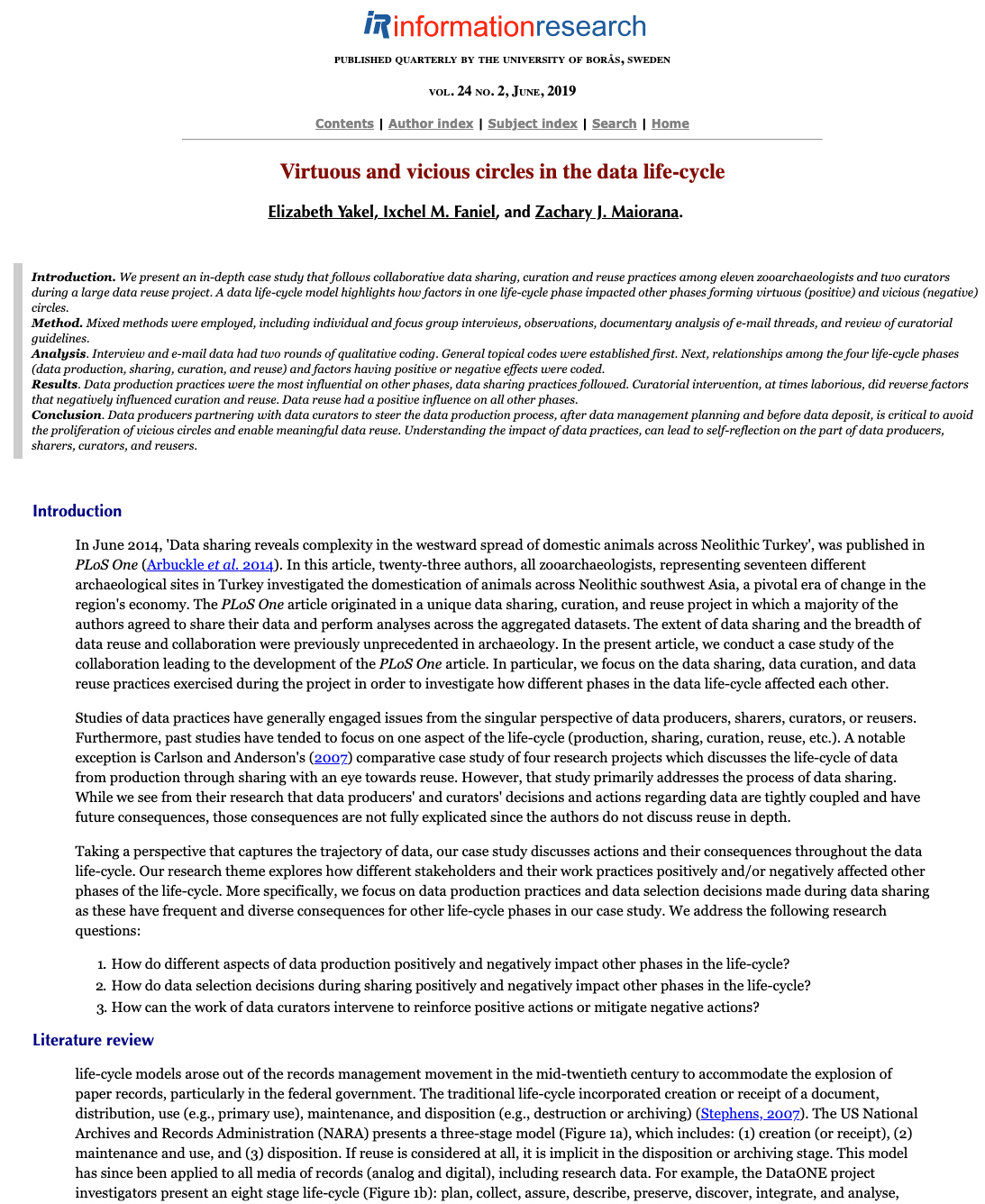
Virtuous and Vicious Circles in the Data Life-cycle
2 June 2019
Elizabeth Yakel, Ixchel M. Faniel, Zachary J. Maiorana
A data life cycle model illustrates how factors in one data life cycle phase impacts other phases, forming virtuous (positive) and vicious (negative) circles. This method comprehensively studies how data producers, sharers, curators, and reusers can better collaborate across data life cycle phases.
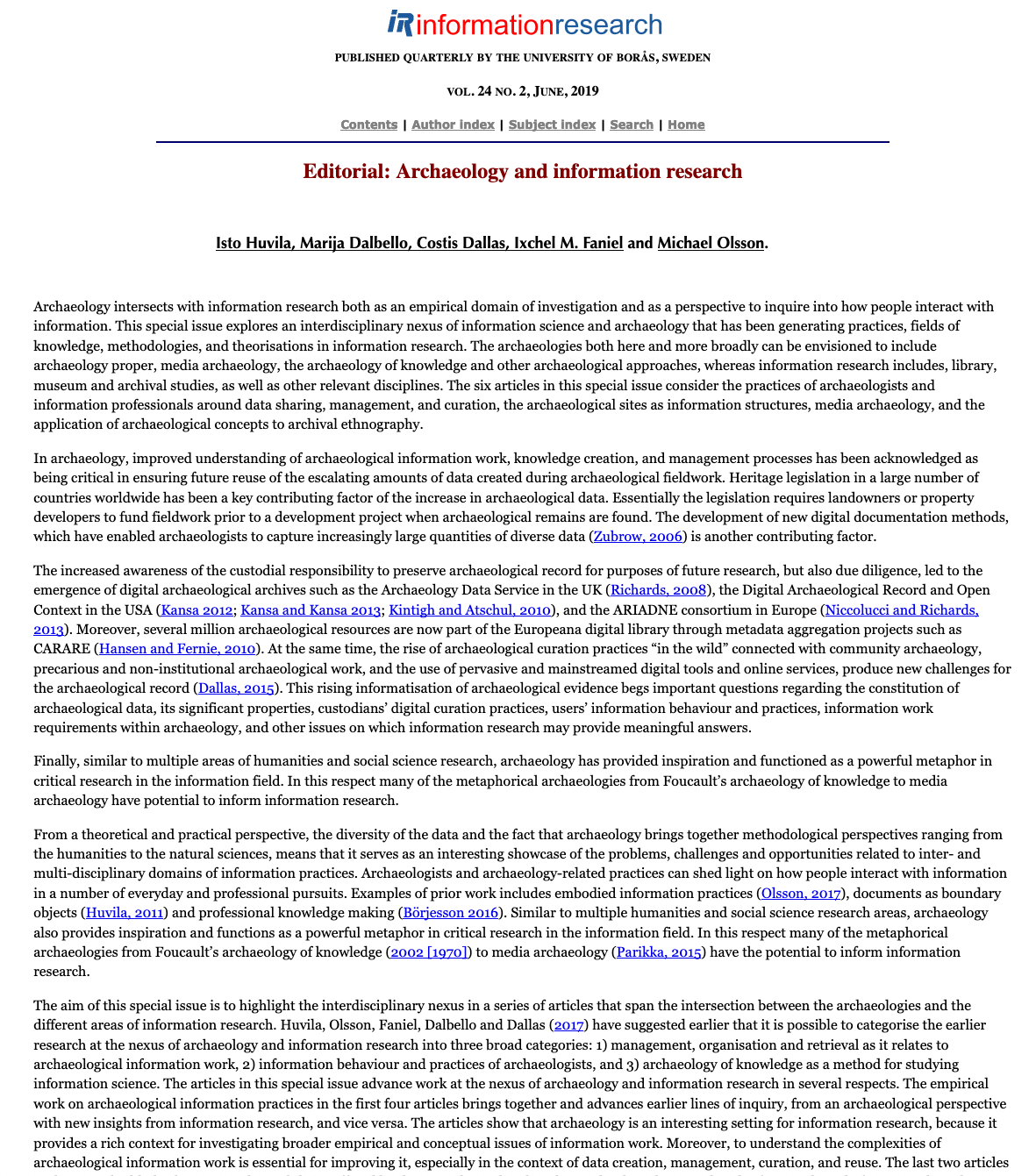
Editorial: Archaeology and Information Research
1 June 2019
Isto Huvila, Marija Dalbello, Costis Dallas, Ixchel M. Faniel, Michael Olsson
This editorial provides an overview of an issue of Information Research that studies the interdisciplinary nexus of archaeology and information research. This includes shared methods of data sharing, management, and curation; archaeological sites as information structures; media archaeology; and archaeological concepts in archival ethnography.